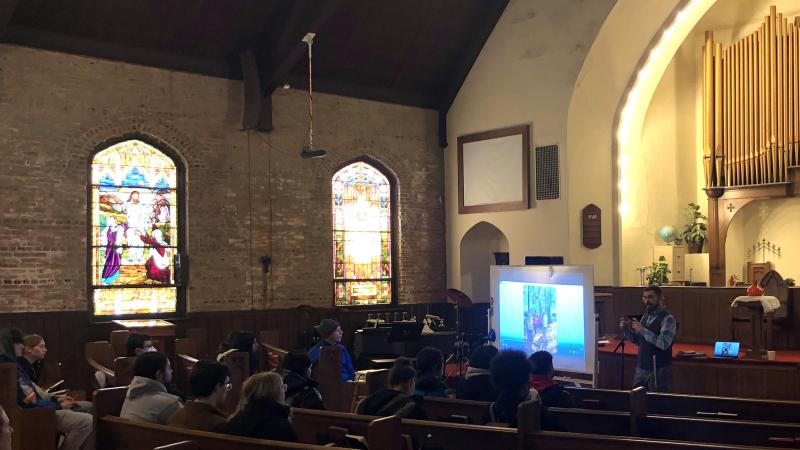February 14, 2023

Students in the School of Architecture at Rensselaer Polytechnic Institute (RPI) are working with the Refugee and Immigrant Support Services of Emmaus Inc. (RISSE) to develop plans to reimagine a multi-building complex that includes a 16,000-square-foot historic church listed on the National Register of Historic Places.
RISSE is a community- based not-for-profit organization located in Albany. RISSE’s mission is “to equip refugees and immigrants to build sustainable, independent lives by offering language and literacy instruction, as well as support with life skills and integration into U.S. culture and community.” The organization serves refugees from over 40 different countries who have been displaced because of war, persecution, or violence.
The RPI-RISSE Design Studio is part of the School of Architecture’s Capital Region Initiative to expand the school’s design pedagogy outside of the traditional classroom to engage community stakeholders through outreach activities in the New York State Capital Region.
This year’s design project will focus on the adaptive reuse of the multi-building complex with two interrelated scopes of work: a comprehensive framework plan for the whole site complex and a series of discrete, phased design interventions.
According to Matt Burgermaster, who leads the studio, the project will challenge upper-level undergraduate design students to think about adaptation in both architectural and social terms. The orientation toward questions of “adaptation” offers students the opportunity to consider what transformative change looks like when using modest means, working with existing things, and creating for a community of displaced people, he said.
“This Vertical Studio will explore the historically undervalued field of adaptive reuse in relation to architecture’s capacity to engage social concerns in ways that open new possibilities for fostering community and creating new forms of collectivity,” said Burgermaster.
In the RPI School of Architecture, design studios are organized in collaboration with local community partners to engage issues of social relevance, leadership, and identity. These issues are seen as integral to the students’ educational experience as global citizens, by situating the role of the architect through advocacy and action, equity and inclusion, and the role of design as a form of social practice. Recent collaborations include the LUCID project in Albany, RISE High School in Schenectady, and the Thomas Cole Society in Catskill.